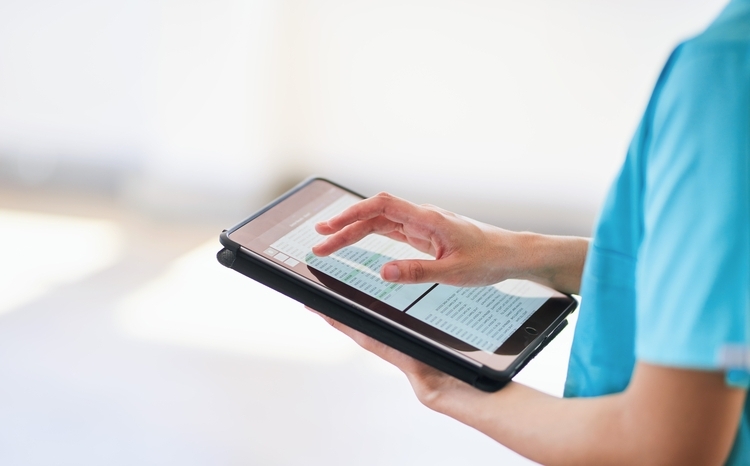Your morning summary of digital health news, information and events to know about if you want to be “in the know”.
 News
News
 More than 50,000 women in north London have been recruited onto a study exploring whether 3D mammograms are better than 2D scans at screening for breast cancer, according to a press release published on 2 September 2024 by The Royal Free London’s North London Breast Screening Service. Once complete, researchers will analyse data to determine which type of scanning tech should be used as part of the UK’s breast cancer screening programme.
More than 50,000 women in north London have been recruited onto a study exploring whether 3D mammograms are better than 2D scans at screening for breast cancer, according to a press release published on 2 September 2024 by The Royal Free London’s North London Breast Screening Service. Once complete, researchers will analyse data to determine which type of scanning tech should be used as part of the UK’s breast cancer screening programme.
 George Eliot Hospital NHS Trust is trialling augmented reality (AR) technology for ultrasound-guided injections. Using the Apple Vision Pro headset, doctors can view both the patient and ultrasound images simultaneously, improving the accuracy and efficiency of injections. The goal is to make the procedure more effective and comfortable for patients, with the trust also aiming to explore the use of AR in other medical treatments.
George Eliot Hospital NHS Trust is trialling augmented reality (AR) technology for ultrasound-guided injections. Using the Apple Vision Pro headset, doctors can view both the patient and ultrasound images simultaneously, improving the accuracy and efficiency of injections. The goal is to make the procedure more effective and comfortable for patients, with the trust also aiming to explore the use of AR in other medical treatments.
 AI-powered radiology and health informatics firm DeepHealth, is partnering with HOPPR, the company behind the first AI foundational model for medical imaging, to commercialise a medical-grade generalised foundational model. The partnership is intended to boost diagnostic accuracy and enable generative AI in non-clinical applications, including workflow automation, to increase efficiency in care delivery, and enhance patient care and outcomes in radiology.
AI-powered radiology and health informatics firm DeepHealth, is partnering with HOPPR, the company behind the first AI foundational model for medical imaging, to commercialise a medical-grade generalised foundational model. The partnership is intended to boost diagnostic accuracy and enable generative AI in non-clinical applications, including workflow automation, to increase efficiency in care delivery, and enhance patient care and outcomes in radiology.
 Barts Health NHS Trust has signalled its plans to procure a real-time, site-wide patient monitoring system at St Bartholomew’s Hospital. The trust is looking for a system that can connect with its existing EPR and is capable of continuously monitoring vital signs including heart rate, blood pressure and oxygen levels. Details can be found in the pre-procurement notice, published on 21 August 2024.
Barts Health NHS Trust has signalled its plans to procure a real-time, site-wide patient monitoring system at St Bartholomew’s Hospital. The trust is looking for a system that can connect with its existing EPR and is capable of continuously monitoring vital signs including heart rate, blood pressure and oxygen levels. Details can be found in the pre-procurement notice, published on 21 August 2024.
 Milton Keynes University Hospital and Cranfield University have developed a prototype designed to improve heart imaging. The semi-autonomous device, called Echo-Robot, uses AI and robotics to improve the clarity and detail of heart images. The project involved a team of experts in cardiology, robotics, and AI, working together with support from the medical imaging industry.
Milton Keynes University Hospital and Cranfield University have developed a prototype designed to improve heart imaging. The semi-autonomous device, called Echo-Robot, uses AI and robotics to improve the clarity and detail of heart images. The project involved a team of experts in cardiology, robotics, and AI, working together with support from the medical imaging industry.
 Did you know?
Did you know?
A report suggests the NHS could save more than £1.2 billion by 2035 through the use of lifestyle monitoring technology in social care. Analysis by Policy Points, commissioned by health-tech company Lilli, found that these tools could save more than 2.3 million hospital bed days and support 10,000 additional full-time carers.
The report also estimates that early detection of conditions, such as urinary tract infections could save the NHS £1.8 million annually by preventing hospital admissions.
Kelly Hudson, chief executive at Lilli, said: “Right now, the people who need care are not getting the help that they should, and the problem will only get worse as the population ages.
“The savings and productivity figures highlight the profound difference that an investment in technology now would have not just on the system but on the lives of people up and down the country”.
 What we’re reading
What we’re reading
The article, We Need to Do More to Protect the Health Service from Cyber Attacks, published in Business News Wales on 29 August, examines the pressing cybersecurity challenges facing UK healthcare and urgent need to strengthen the sector’s defences.
Written by Jonathan Stock, chief information risk officer at PureCyber, the column details the impact of ransomware attacks such as the Synnovis cyber attack earlier in 2024, which caused significant disruptions to services at several London hospitals.
He also discusses the risks posed by phishing attacks, which exploit human error to gain access to sensitive information, saying healthcare organisations need to improve staff training and awareness of these attacks.
“There are financial and resource constraints which are always valid concerns, however, the cost of a major cyber incident far outweighs the investment in preventive measures,” writes Stock.
 Upcoming events
Upcoming events
11 September, London/ online – How should government use AI?













